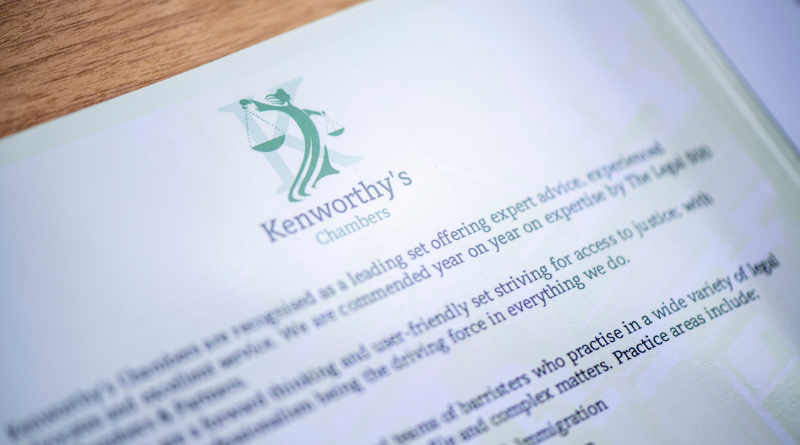Payment for Appeal Skeleton Arguments in First-tier Tribunal Immigration and Asylum Appeals

Kenworthy's Chambers has, along with numerous other sets of barristers' chambers, adopted the following policy:
Other than in exceptional circumstances, each member of the immigration team of the chambers listed below will not accept instructions under the 'Reform Procedure' to prepare an 'Appeal Skeleton Argument', unless specific provision is made for that work to be adequately remunerated.
It is a matter of great regret that the Immigration team at Kenworthy's feel that it has been necessary to take this step. Our explanation follows below:
On 23 March 2020, the President of the Immigration and Asylum Chamber of the First-tier Tribunal (FTTIAC) issued Presidential Practice Statement Note No 1 of 2020: Arrangements during the Covid-19 pandemic, which requires all appeals to the FTTIAC to be commenced using the experimental online procedure that was being trialled before the Covid-19 pandemic hit (the 'Reform Procedure').
The Reform Procedure is designed to encourage the parties to resolve appeals where possible without live hearings. To this end, among other innovations, appellants are required to submit a full appellant's bundle and an 'Appeal Skeleton Argument' ('ASA') at an early stage, setting out a summary of the appellant's case, a schedule of issues and the appellant's submissions on those issues. The respondent (i.e. the Home Office) is then required to respond to the ASA in detail, identifying what is accepted and what is rejected or denied. After the parties have complied with these stages, an FTTIAC Judge will decide how the appeal is to proceed, including whether it can be determined without a hearing.
At around the same time as issuing Presidential Practice Statement Note No 1 of 2020, the FTTIAC President directed that all appeal hearings that had already been scheduled were to be vacated and replaced with Case Management Review hearings by telephone. In consequence, judges at the FTTIAC hearing centres started issuing directions that the appellants in those cases should submit ASAs as described in the Reform Procedure.
Purportedly to address this change in procedure, the Ministry of Justice has recently issued The Civil Legal Aid (Remuneration) (Amendment) (Coronavirus) Regulations 2020, to take effect on 08 June 2020. These provide for a single fixed fee to cover both preparation and appeals during the Reform Procedure. However, the provisions it makes to deal with the new procedure are, regrettably, inadequate.
In almost every case the ASA is likely to be a significant piece of work of central importance to appellant's prospects of succeeding in the appeal, which needs to be prepared considerably in advance of any hearing date. The fee for this cannot simply be part of the fee for conducting the hearing. There are a number of reasons for this. The first reason is that no hearing may actually take place. The main purpose of the ASA under the Reform Procedure appears to be to prompt the Home Office to review the case with a view to narrowing the issues and possibly conceding the case altogether. If the Home Office decide to concede there will be no hearing and no fee will be paid for the barrister to conduct it. Thus, it can be seen that the most successful ASA's i.e. those that persuade the Home Office to concede the case, will attract no payment at all. Another reason why the new fee structure is inadequate is that, even if there is a hearing, it will not be possible to guarantee that the barrister who has drafted the ASA will be available to conduct the hearing, which may take place some weeks later. In circumstances where the appeal does proceed to a hearing and the barrister who drafted the ASA is available to conduct that hearing ILPA says that firms could have as little as £60 to offer for the ASA.
As a consequence we have been forced to adopt the position that, absent exceptional circumstances, any client wishing to instruct a barrister at Kenworthy's to draft an ASA will need to agree a fee with the barrister for that specific piece of work.
There are other problems with the new fee structure which will have a more significant effect on solicitors. Notably, it raises the threshold at which the escape fee can be claimed and hourly rate payments kick in. The likelihood is that this will make it uneconomic for solicitors to take on more complicated cases.
Kenworthy's shares the concerns expressed by many other barristers chambers and law firms, the Bar Council, the Law Society and the Immigration Law Practitioners Association about the Reform Procedure and its impact upon the costs to appellants and the level of public funding made available by the Ministry of Justice.
The other sets of barristers' chambers which have adopted the same policy so far are;
-
1 MCB Chambers Immigration Team
- 4 King's Bench Walk Immigration Team
- 36 Public and Human Rights, The 36 Group
- Broadway House Immigration Team
- Doughty Street Chambers Immigration Team
- Drystone Chambers Immigration Team
- Garden Court Chambers Immigration Team
- Garden Court North Chambers Immigration Team
- Goldsmith Chambers Immigration Team
- Hirst Chambers
- Justitia Chambers
- KBW Chambers Leeds
- Kenworthy's Chambers
- Lamb Building Immigration Practice Group
- Landmark Chambers Immigration Group
- Matrix Chambers Immigration Team
- 5 Immigration Group
- 8 Immigration Team
- One Pump Court Immigration Team
- Trinity Chambers
